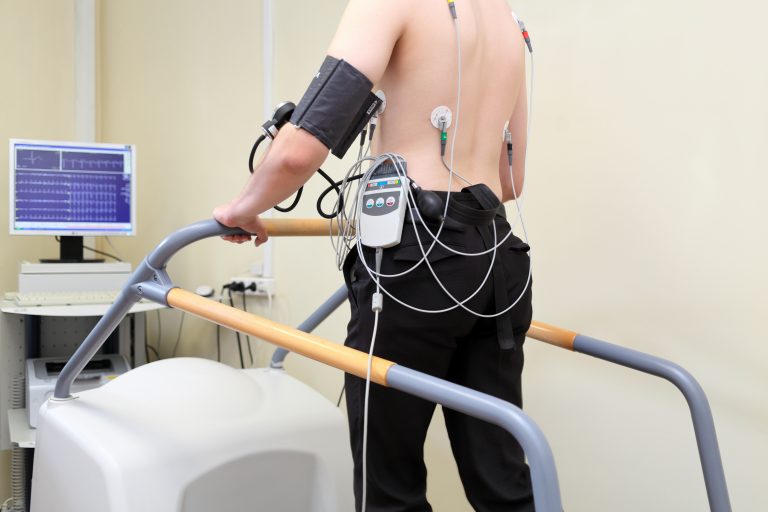TMT Test Bangalore: Complete Guide to Treadmill Stress Testing
October 7, 2025 | by IoT Development Company

TMT Test Bangalore: A Comprehensive Guide to Heart Health
Heart health is too precious to take chances with. Among the many diagnostic tools available, the treadmill stress test (TMT) stands out as a reliable way to evaluate how well your heart performs under stress. If you’re in Bangalore and searching for a dependable center, tmt test bangalore services by leading diagnostic clinics offer state-of-the-art technology and expert supervision.
This guide will walk you through what the test involves, its benefits, risks, and why it’s essential to monitor your cardiac health proactively.
What is a TMT Test?
Understanding the Treadmill Stress Test
A treadmill stress test, commonly known as a TMT, measures your heart’s response to physical exertion. Unlike a resting ECG, which captures your heart’s activity when you’re still, a TMT evaluates how your heart functions when pushed to work harder.
During the procedure, you’ll walk on a treadmill with increasing speed and incline. Simultaneously, your heart’s electrical activity, blood pressure, and pulse are closely monitored. The results can help detect underlying coronary artery disease, arrhythmias, and other cardiovascular concerns.
Why Should You Consider a TMT?
Early Detection is Key
Heart diseases often progress silently. A person might not experience any symptoms until significant damage has occurred. That’s why a TMT is so valuable — it can reveal problems before they become critical. By identifying reduced blood flow or irregular rhythms under stress, doctors can recommend timely interventions.
Who Needs a TMT?
A TMT is often prescribed if you:
- Experience unexplained chest pain or discomfort.
- Have risk factors like hypertension, diabetes, obesity, or a family history of heart disease.
- Need cardiac clearance before major surgeries.
- Want to evaluate your exercise tolerance, especially if you’re starting a new fitness program.
Preparing for Your TMT
What to Do Before the Test
- Clothing: Wear comfortable, loose-fitting clothes and walking shoes.
- Food & Drink: Avoid heavy meals at least 2 hours before. Stay hydrated but limit caffeine.
- Medications: Inform your doctor about your medications. Some might need to be paused.
- Health Conditions: Let the technician know if you have breathing difficulties, arthritis, or balance issues.
Being well-prepared ensures accurate results and minimizes discomfort during the test.
How is the TMT Conducted?
Step-by-Step Process
- Baseline Readings: Your resting heart rate, blood pressure, and ECG are recorded.
- Start Walking: You’ll begin walking at a slow speed on a flat treadmill.
- Gradual Increase: Every 3 minutes, speed and incline increase to make your heart work harder.
- Continuous Monitoring: Technicians keep an eye on ECG changes and your symptoms.
- Cool Down: Once the target heart rate is achieved or symptoms occur, the treadmill stops, and your recovery phase is monitored.
Typically, the entire process lasts 30 to 45 minutes.
Is the TMT Safe?
Understanding Risks and Safety Measures
The TMT is generally safe for most people. Trained professionals closely monitor you throughout, ready to stop the test at the slightest sign of trouble. You might feel breathless, tired, or slightly dizzy, but serious complications are very rare.
Always choose a reputed diagnostic center like tmt test bangalore facilities, where emergency protocols are firmly in place.
What Happens After the TMT?
Getting Your Results
Your doctor will interpret the test results alongside your medical history and symptoms. If abnormalities are found, they may recommend further evaluations like an echocardiogram, stress echo, or coronary angiogram. If everything is normal, you can be reassured that your heart handles stress well.
Taking Care of Your Heart Post-Test
Regardless of your test outcome, maintaining heart health should be a lifelong commitment. Adopt heart-healthy habits:
- Eat more fruits, veggies, whole grains, and lean proteins.
- Exercise regularly.
- Manage stress through yoga or meditation.
- Quit smoking and limit alcohol.
- Keep blood sugar, cholesterol, and blood pressure in check.
Conclusion
Taking a proactive approach to cardiac health can make all the difference. Whether you have risk factors or just want peace of mind, scheduling a tmt test bangalore appointment is a wise step toward safeguarding your heart.
Remember, your heart works tirelessly for you — make sure you do the same for it.
FAQs
1. What is the difference between a treadmill test and an ECG?
A treadmill test checks how your heart functions under physical stress, while a standard ECG captures your heart’s electrical activity at rest. The treadmill test can reveal problems that might not appear on a resting ECG.
2. Can I take my regular medication before the stress test?
Some medicines, like beta-blockers, may affect results. Always consult your doctor before the test about which medications to continue or pause.
3. How soon will I get my stress test results?
In most cases, preliminary results are available immediately after the test. The final report, reviewed by a cardiologist, may take a day or two.
4. What symptoms should I report during the test?
Notify the technician right away if you feel chest pain, extreme shortness of breath, dizziness, or leg pain during the procedure.
5. Is fasting required before a treadmill stress test?
Fasting isn’t usually necessary, but it’s advised not to have a heavy meal within 2 hours of the test. Light snacks are generally fine.
6. Can people with arthritis or joint issues do this test?
If you have severe arthritis or mobility issues, alternatives like a pharmacological stress test may be recommended instead of walking on a treadmill.
RELATED POSTS
View all



